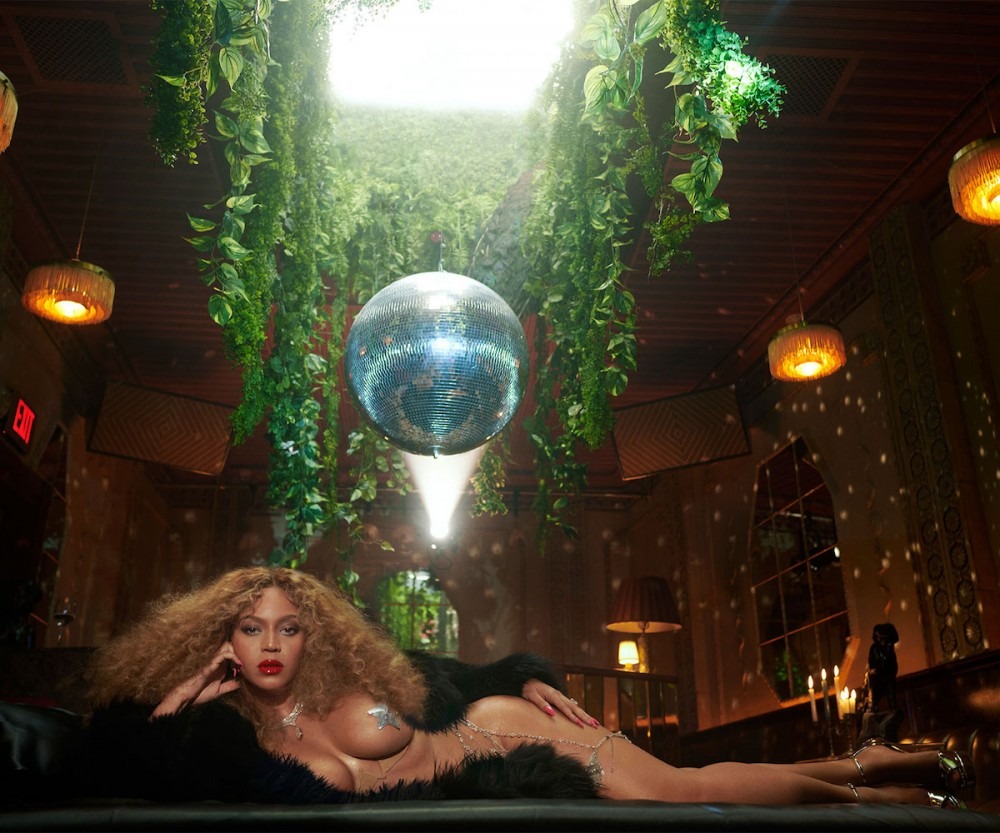Beyoncé’s ‘Renaissance’ Honors Black And Queer Dance Music’s Legacy

Beyoncé’s Renaissance serves as a love letter to Black queer pioneers of dance music from the past and present.
Beyoncé has again taken over the cultural zeitgeist with her new album Renaissance. Infusing genres such as disco, house, R&B, and pop, the project is joyous, sexy, and grown, resulting in a meticulously-sequenced album that feels like one of the best hour-long DJ experiences you’ve ever wanted to have on the dance floor.
An integral part of Beyonce’s 16-track long dance party are the Black queer figures she employed for the project, highlighting how Renaissance also serves as a love letter to Black queer pioneers of dance music from the past and present. Bounce music legend Big Freedia on the hit single “Break My Soul”; ballroom and drag soundbites from TS Madison, Moi Renee, MikeQ, Kevin Aviance, and Kevin JZ Prodigy on tracks like “Cozy” and “Pure/Honey”; and electronic DJ Honey Dijon having a hand in producing “Cozy” and “Alien Superstar,” these contributions are felt all throughout the album, and wouldn’t be what is without them. On a personal level, Beyoncé’s gay uncle and godmother, Jonny, was also an influence. Aside from highlighting him on the track “Heated,” she also acknowledged him in an open letter to fans before the album’s release.
“He was my godmother and the first person to expose me to a lot of the music and culture that serve as inspiration for this album,” she said of Jonny, who died of complications from AIDS when Beyoncé was 17. “Thank you to all of the pioneers who originate culture, to all of the fallen angels whose contributions have gone unrecognized for far too long. This is a celebration for you.”
This celebration begins with the opening track “I’m That Girl,” with the songstress cementing her place as the reigning queen of pop. She offers listeners their own boost of confidence with cascading beats and angelic harmonies in the background, proudly singing: “I pull up in these clothes look so good, Cause I’m in that hoe.”
Some of the best moments on Renaissance are tracks like “Alien Superstar,” arguably one of the immediate fan favorites off the album. Transitioning from a vogue/ballroom-type beat to a disco chorus that finds Beyoncé channeling her inner ‘70s diva, “Alien Superstar” finds the singer bottling her self-confidence, her opening lines of “I’m one of one, I’m number one” giving way to a hook that reinforces just how no one comes close to the larger than life pop star.
“Pure/Honey,” another uptempo track, is not just another standout from the album, but possibly one of the queerest influenced tracks on it, too. Featuring samples from ’90s drag and house music legend Moi Renee, as well as other Black queer artists like Kevin Aviance (the legendary drag performer, club musician, and nightclub personality from the House of Aviance), DJ MikeQ (known for producing the music for the documentary Kiki and being the resident DJ on HBO Max’s Legendary), and one of the most well-known Ballroom commentators, Kevin JZ Prodigy, “Pure/Honey” captures the thrill and fun of ballroom, its pulsing beat never letting up until the tracks comes to an end.
Ending out the album is “Summer Renaissance,” a track that finds the singer encapsulating all the musical influences listeners have heard throughout the project. It works as a culmination, perfectly summing up Renaissance as it channels the past of Donna Summers’ disco hit “I Feel Love” to inform the future Beyoncé envisions: one of self-acceptance and joy, especially for a community that has been marginalized for decades.
Despite the early comparison to Drake’s Honestly, Nevermind after releasing lead single “Break My Soul,” Renaissance offers a deeper dive into the significance Black gay men have had on pop culture. Before the album was released, social media was set ablaze after it was alleged that the artists had made house — and by extension, dance music — music Black again. House music has always been Black and was built off the backs of Black women and Black queer and gender non-conforming folks. So, it’s truly amazing to see an artist of Beyoncé’s caliber putting ballroom and drag scenes into mainstream pop music.
As you peel back the layers, Renaissance gives listeners a multitude of feelings. The album is not only a masterful soundtrack and introduction for newcomers to dance music, but an homage to Black queer folks and their experiences. Moreover, Renaissance isn’t just for Black queer folks; it’s for everyone. It is about giving Black people a chance to celebrate themselves, and Beyoncé did just that.
With war raging and major health pandemics across the globe, it’s understandable why some have critiqued the album as being escapist. While they have a point, it’s not the responsibility of Black women to fix everything — even if they are Beyoncé — and upbeat music during challenging times like this may be the remedy we all need. Amid everything going on in the world, it’s sorely needed, and Renaissance delivered in more ways than one.
—
Alexis Oatman is a freelance culture writer and general assignment reporter. The Ohio native and Cleveland-based journalist covers arts and entertainment, beauty, fashion, health, and more. She has contributed to several major publications, including Teen Vogue, Harper’s Bazaar, POPSUGAR, Paper Magazine, Essence, TheGrio, and more. Find her on Twitter @iamlexstylz

